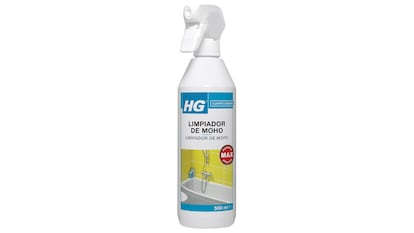Cable de EE UU en el que Castresana le comunica que el 60% de Guatemala est¨¢ bajo el control de los narcotraficantes
El fiscal espa?ol asegura que el narcotr¨¢fico, fundamentalmente mexicano, recluta a pandilleros de la Mara Salvatrucha y corrompe a los cuerpos de seguridad y de la judicatura
| ID: | 241671 |
| Date: | 2009-12-24 18:16:00 |
| Origin: | 09GUATEMALA1035 |
| Source: | Embassy Guatemala |
| Classification: | CONFIDENTIAL |
| Dunno: | 09GUATEMALA1023 09GUATEMALA1284 09GUATEMALA254 09GUATEMALA917 |
| Destination: | VZCZCXYZ0000 RR RUEHWEB DE RUEHGT #1035/01 3581816 ZNY CCCCC ZZH R 241816Z DEC 09 FM AMEMBASSY GUATEMALA TO RUEHC/SECSTATE WASHDC 0650 INFO WHA CENTRAL AMERICAN COLLECTIVE RHEHNSC/WHITE HOUSE NATIONAL SECURITY COUNCIL WASHINGTON DC RUCNDT/USMISSION USUN NEW YORK 0062 RUEAIIA/CIA WASHINGTON DC |
C O N F I D E N T I A L GUATEMALA 001035 SIPDIS E.O. 12958: DECL: 2019/12/24 TAGS: PREL, ECON, SNAR, PGOV, PHUM, UN, HO, GT SUBJECT: WHA DAS Reynoso's Visit Reaffirms Partnership with Guatemala REF: A) 09 GUATEMALA 254; B) 09 GUATEMALA 1284; C) 09 GUATEMALA 917 D) 09 GUATEMALA 1023 CLASSIFIED BY: Stephen G. McFarland, Ambassador, STATE, POL/ECON; REASON: 1.4(B), (D) 1. (C) Summary: During her December 13-16 visit to Guatemala, WHA DAS Julissa Reynoso met with President Colom, First Lady Sandra Torres de Colom, senior members of government, CICIG Commissioner Castresana, and representatives of civil society, the press, and the business community. Colom focused on the situation in Honduras and Guatemala's pending tax legislation while the First Lady noted the positive impact of the many social programs which fall under the Social Cohesion Council, which she leads. Colom also expressed interest in making an official visit to Washington to meet President Obama and the Secretary. CICIG Commissioner Castresana detailed the continuing challenges his commission faces in prosecuting cases in Guatemala and sought support for a U.S.-based CICIG office in Houston. DAS Reynoso also visited various USG-supported projects which are decreasing rates of malnutrition, supporting microenterprise, and making the judicial system more efficient. She also met with Otto Perez Molina, the principal opposition leader, who explained his party's platform for the upcoming 2011 elections. DAS Reynoso's visit received wide and positive press coverage indicating interest on the part of Guatemalans in seeing high-level USG engagement. End Summary. Meeting with President Colom Focuses on Honduras, Tax Reform 2. (C) President Alvaro Colom, accompanied by Foreign Minister Haroldo Rodas, opened his meeting with DAS Reynoso by discussing justice reform in Guatemala. Colom acknowledged that the UN-led International Commission Against Impunity in Guatemala (CICIG) has provided crucial support to the justice sector, particularly to the Attorney General's office (Public Ministry) and the courts. Colom also touched on his administration's pending tax legislation proposals, and noted that there was still a chance of passing them this year despite the traditional resistance Guatemalans have to taxes. (Note: The proposed law would increase taxes on businesses and impose a much-derided cell phone tax. Recent press reports following the visit indicate this issue will be tabled until 2010. End Note.) Turning to the issue of food security, Colom lauded the First Lady's Social Cohesion Council programs, which he claimed have improved human development indicators in all areas where the programs are active except for maternal deaths (Ref A). Colom then expressed interest in making an official visit to Washington in the first half of 2010, and underscored his desire to meet with President Obama and Secretary Clinton. 3. (C) Shifting the focus to Honduras, Colom agreed with DAS Reynoso that newly-elected President Porfirio "Pepe" Lobo seems like a well-intentioned interlocutor and someone who can restore peace to the country. Foreign Minister Rodas interjected, stating that once Lobo begins his mandate, Guatemala will have to wait and see what happens. Rodas asserted that Guatemala could not accept that a coup, followed by elections, would somehow justify the illegal overthrow of the government. Rodas also noted that the USG's continued role in Honduras is critical to ensure a smooth recovery. According to Rodas, the economic and social impact of the crisis will only begin to be felt once a more stable government is in place. 4. (C) DAS Reynoso asked Colom for Guatemala's support on the upcoming UN vote on the "Situation of Human Rights in the Islamic Republic of Iran". Rodas responded that Guatemala was awaiting the results of a UN commission deliberating the issue and hinted that Guatemala would follow this commission's recommendation. (Note: Guatemala previously abstained from voting on this issue. End Note.) Rodas also indicated that Guatemala is not interested in establishing a closer relationship with Iran as other Bolivarian Alternative for the Americas (ALBA) countries have done. 5. (C) In an otherwise positive meeting, Rodas criticized the USG for its reporting cycle which publicizes country indicators from the prior year. While Rodas was likely alluding to Guatemala's less-than-stellar MCC report card, Rodas generalized and stated that he did not feel Guatemala is treated as well as other countries in the region despite its importance in Central America (Ref B). HehEhHeHe argued that Guatemala's indicators have improved in the last year. Colom, however, ended the meeting on a positive note claiming that 2010 would be a better year for Guatemala and that with Honduras resolved, the country could proceed to aggressively tackle other issues, including focusing on empowering indigenous women. First Lady Emphasizes Development and Women's Issues 6. (C) DAS Reynoso's conversation with First Lady Sandra Torres de Colom centered on development and women's issues. The First Lady acknowledged the support Guatemala has received through USAID programs. In addition, she detailed the many successes of the social programs which fall under the Social Cohesion Council, which she spearheads. Despite implementation obstacles, including the difficulty of working with a population that speaks 23 different indigenous languages, a traditionally male-dominated society, and a natural suspicion of social programs, a number of her initiatives have been highly successful. She noted that the "My Family Progresses" program has assisted 500,000 families by providing monthly cash stipends to poor mothers on the condition that they keep their children in school and vaccinated. Torres de Colom noted that this has resulted in a 53% increase in school attendance where the program is established. She also noted that another component of the Council is the "Open Schools" program which provides children in gang-infested neighborhoods a safe place to play and learn on the weekends. Torres de Colom advocated that these programs should be permanently institutionalized within the government. 7. (C) When discussing conflicts with the private sector over pending tax legislation, Torres de Colom argued that the private sector needs to be more flexible and was dismissive of its accusations of government corruption, which, she claimed have never amounted to anything but have only detracted from finding real solutions. The Ambassador offered to facilitate dialogue between the private sector and the Colom administration (including the First Lady) in the hopes that they could come to a mutual understanding of how best to tackle the country's problems. (Comment: Torres de Colom appeared calm, confident and likable during the meeting. She linked her initiatives with those of Secretary Clinton in terms of advancing the rights of minorities and women. She was clearly convinced that the Colom administration's domestic-rural focus was the appropriate one. Torres de Colom is hoping to garner rural support when she runs for president in 2011 and these programs are an integral part of establishing herself as an effective leader in these communities (Ref C). End Comment.) Private Sector Frustrations 8. (C) In a meeting hosted by the Ambassador at his residence, a dozen representatives from private industry and the influential Coordinating Committee for the Chambers of Agriculture, Commerce, Industry, and Finance (CACIF), voiced their concerns and frustrations over the current poor state of relations with the Colom administration. They repeatedly justified their opposition to the president's tax reform package based on the high levels of corruption that they believe characterize the government. All appreciated the Ambassador's efforts to bring the two sides together but stated that President Colom has only provided empty promises to date. When DAS Reynoso pressed the private sector to focus on making practical solutions, they pushed the blame onto Colom and said that without a credible partner, they could not accomplish anything. DAS Reynoso pressed back, urging the private sector to take some responsibility for bridging Guatemala's extreme wealth distribution gap. In response they noted that the private sector pays 89% of the country's taxes while individuals only contribute 11%. Many added that the wealthy are not the only ones responsible for combating poverty, and argued that the government needs to increase competition attacking corruption, tax evasion, and smuggling. 9. (C) Government corruption was also a recurrent theme in a separate meeting between DAS Reynoso and members of the American Chamber of Commerce (AmCham). A number of members remarked that the goal of the current administration is to ensure the First Lady is elected president in 2011. However, they also praised CICIG and the Embassy for their efforts in helping to pass needed legislation and for bringing together civil society and government organizations in an effort to foster communication between the two. Members also brought attention to various training programs the AmCham is sponsoring to educate judges on intellectual property rights and to train labor inspectors. Some board members also highlighted their efforts to demonstrate good corporate social responsibility. For example, Microsoft has a program in place which teaches former gang members technical computer skills. Citibank, the largest foreign banking institution in Guatemala, wants to partner with USAID to allow Citibank customers to use their credit cards to make contributions to a food security campaign while doing their regular shopping. When some AmCham representatives asked DAS Reynoso for the USG's continued assistance in Guatemala in order to resolve the country's problems, DAS Reynoso made clear that the USG does not solve problems but works in partnership with other countries. She reminded the AmCham guests that Guatemala, and its citizens, need to take responsibility for making positive change. CICIG Commissioner Maps Out Next Two Years 10. (C) Carlos Castresana told DAS Reynoso that CICIG would focus on strengthening the police, the prison system, the Attorney General's Office, and the courts during his second two-year tour as Commissioner. Castresana noted that beefing up security programs for judges and prosecutors are two areas that he plans to emphasize. Castresana explained that he expects the next two years to be extremely difficult and a time for critical decisions, including election of the new Attorney General in May 2010 and the appointment of a new Constitutional Court in 2011. Castresana thanked the Ambassador for his continued political support of CICIG, and for the USG's financial and operational support to the organization. Castresana also sought resources for a U.S.-based CICIG office in Houston and suggested that it would cost around 3 million USD per year to operate although he said a more specific proposal would be submitted soon. When asked about cooperation with Mexican law enforcement, Castresana stated that CICIG has utilized DEA Guatemala to communicate with DEA Mexico and identify reliable Mexican counterparts. Castresana lamented that the chances of compromising operational integrity are too great in dealing directly with Mexican authorities. Castresana opined that 60% of Guatemala was already in the hands of Mexican drug trafficking organizations and claimed that if Guatemala becomes a narco-state, El Salvador and Honduras will fall immediately thereafter. USG-Supported Projects Showcase Success 11. (U) A Peace-Corps supported women's cooperative and a USDA-assisted food donation program welcomed DAS Reynoso on site visits. One Peace Corps volunteer has been working with a small, local cooperative that makes organic shampoos, detergents, and soaps. The volunteer, who holds a degree in advertising and marketing communications, has been assisting the cooperative in marketing its products with professional labels and teaching participants how to improve business practices through employee hour logs and inventory records. A USDA-assisted food donation program is functioning in 15 departments around Guatemala and has assisted 175,000 people by providing basic staple foods. The local implementer noted that there has been a 19% decrease in malnutrition among those children participating in the program. The assistance also includes an educational component where mothers give lectures to their peers on a range of health and social issues. (Note: Residents reported that the government's social programs, under the First Lady's Social Cohesion Council, were not active in the community visited. End Note.) 12. (U) DAS Reynoso also visited a USAID-supported 24-hour court in Guatemala City. USAID has supported the creation of five 24-hour courts where police, prosecutors, judges, public defenders, prison officials, forensic technicians and court administrators are co-located in one building and able to efficiently process offenders through the judicial system. The 24-hour courts are able to hold arraignments, order pre-trail detention or bail, and authorize arrest and search warrants, and have been successful in significantly reducing the opportunities for corruption during this process. Erick Alvarez, the newly-elected President of the Supreme Court, described for DAS Reynoso the numerous challenges facing Guatemala's judicial system - lack of security for judges and witnesses, a lack of focus on victim protection, the constant struggle prosecutors face in bringing strong cases to judges for prosecution, and bureaucratic hurdles which prevent the easy purchase of needed equipment, including armored vehicles. Civil Society Pessimism 13. (SBU) In a meeting with representatives of civil society, DAS Reynoso heard about their frustrations with the current administration. Influential human rights activist Helen Mack, of the Myrna Mack Foundation, stated that Guatemala is "going the way of Honduras" and there is increasing instability. Others criticized the corruption and inefficiency of the government but offered no solutions. NGO Mutual Support Group (GAM) leader Mario Polanco thanked DAS Reynoso for Embassy support for human rights, including the Ambassador's presence at the trial that resulted in the first conviction of a military officer for forced disappearance (Ref D). Opposition Candidate Prepares for 2011 14. (C) DAS Reynoso also met with Otto Perez Molina, the leading opposition candidate, of the Patriot Party (PP). Perez Molina described his party's platform and his focus for the 2011 election. He said that PP also has included a version of the "My Family Progresses" in his party's platform but wants to add additional elements of transparency and accountability. He stated that security and justice reform will be a central part of his proposal although he is also working on a social/rural development plan. 15. (C) When asked what the USG could do to help Guatemala, Perez Molina responded that the U.S. and Guatemala are "natural allies" who should enjoy even better commercial relations. Perez Molina thought CAFTA-DR could be better managed by the government to compel local businesses to meet their obligations under the agreement. In turn, this would make the government look better; however, the current organization is weak and inefficient. He remarked that human rights seemed to be the Obama's administration dominant priority while for him, the commercial relationship between the two countries was the most important issue. He also acknowledged that Guatemala needs to do its part as a responsible U.S. partner rather than always asking for help. The government must provide basic services including education, health care, potable water, and roads. In addition, the government must invest in establishing a proper police academy to better train police officers. PP envisions creating a police academy with vetted cadets who will pursue a six-month intensive training program. Perez Molina also faulted the lack of civil service employees for inconsistency in the execution of basic services. He noted that there is a civil service law in the Guatemalan Congress which his party supports. 16. (C) Perez Molina predicted that beginning next year, Congressional deputies would begin to change parties in an attempt to align themselves with the presidential candidate they think has the greatest chance of winning. However, he noted that this lack of attention on domestic problems will make it even more difficult for President Colom to pursue his agenda. Regarding tax reform, Perez Molina criticized Colom for showing no interest in this issue earlier in the year and said that it is not the kind of legislation that can be "put together at the last minute." Consequently, he believed the legislation was unlikely to pass. Broad Press Coverage 17. (U) DAS Reynoso's visit received wide and positive press coverage. In her public statements and private meetings, DAS Reynoso emphasized the USG's desire to partner with countries in the region to improve the justice and security sectors, alleviate poverty and develop fitting food security iQtiatives. Her visit reaffirmed for the Guatemalans that it is considered a USG- partner nation and that USG assistance, through USAID programs, the Merida initiative, the Department of Defense, and other sources, will continue to help Guatemala prosper. It was clear from the positive reaction to her visit that Guatemala highly values its relationship with the U.S. and would eagerly support another high-level visitor. 18. (U) WHA Deputy Assistant Secretary Reynoso cleared this message prior to transmission. MCFARLAND |
Traducci¨®n autom¨¢tica. Puede que el texto traducido no sea fiel al original
Tu suscripci¨®n se est¨¢ usando en otro dispositivo
?Quieres a?adir otro usuario a tu suscripci¨®n?
Si contin¨²as leyendo en este dispositivo, no se podr¨¢ leer en el otro.
FlechaTu suscripci¨®n se est¨¢ usando en otro dispositivo y solo puedes acceder a EL PA?S desde un dispositivo a la vez.
Si quieres compartir tu cuenta, cambia tu suscripci¨®n a la modalidad Premium, as¨ª podr¨¢s a?adir otro usuario. Cada uno acceder¨¢ con su propia cuenta de email, lo que os permitir¨¢ personalizar vuestra experiencia en EL PA?S.
En el caso de no saber qui¨¦n est¨¢ usando tu cuenta, te recomendamos cambiar tu contrase?a aqu¨ª.
Si decides continuar compartiendo tu cuenta, este mensaje se mostrar¨¢ en tu dispositivo y en el de la otra persona que est¨¢ usando tu cuenta de forma indefinida, afectando a tu experiencia de lectura. Puedes consultar aqu¨ª los t¨¦rminos y condiciones de la suscripci¨®n digital.
































































